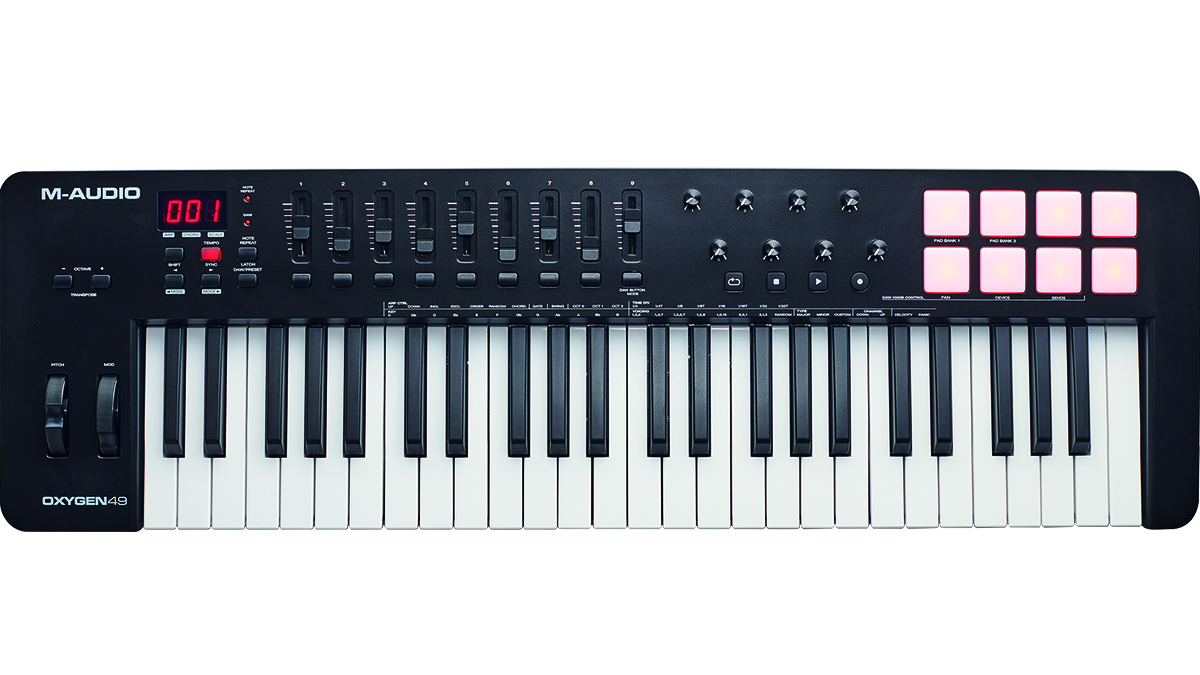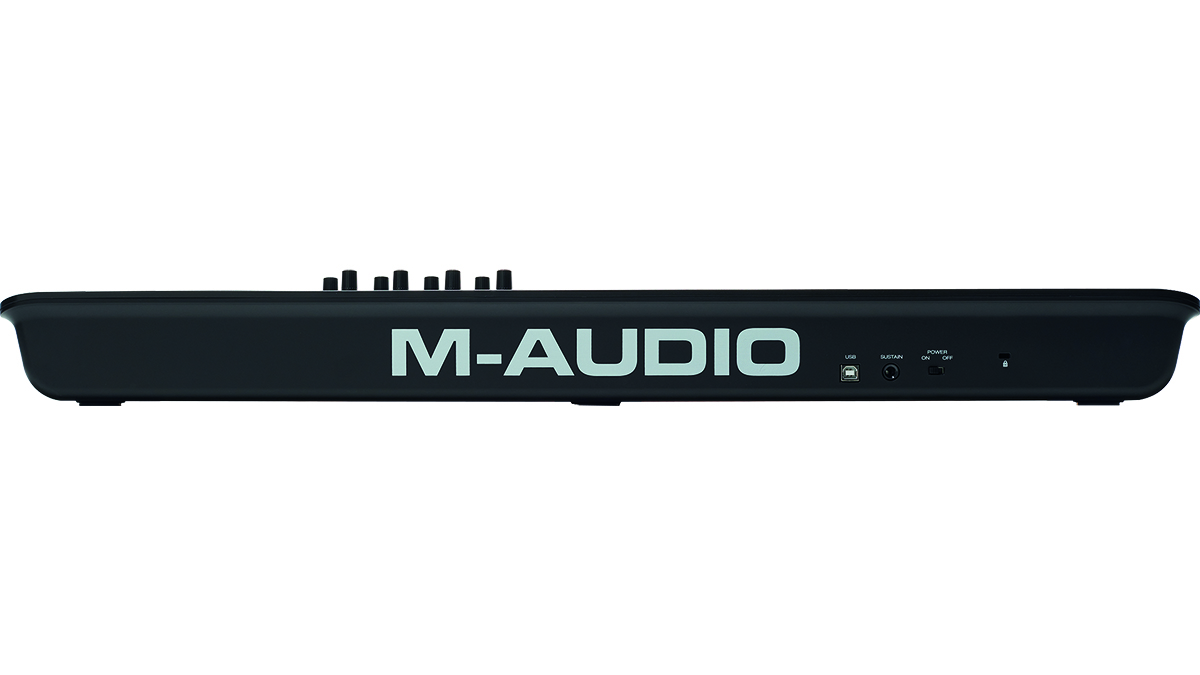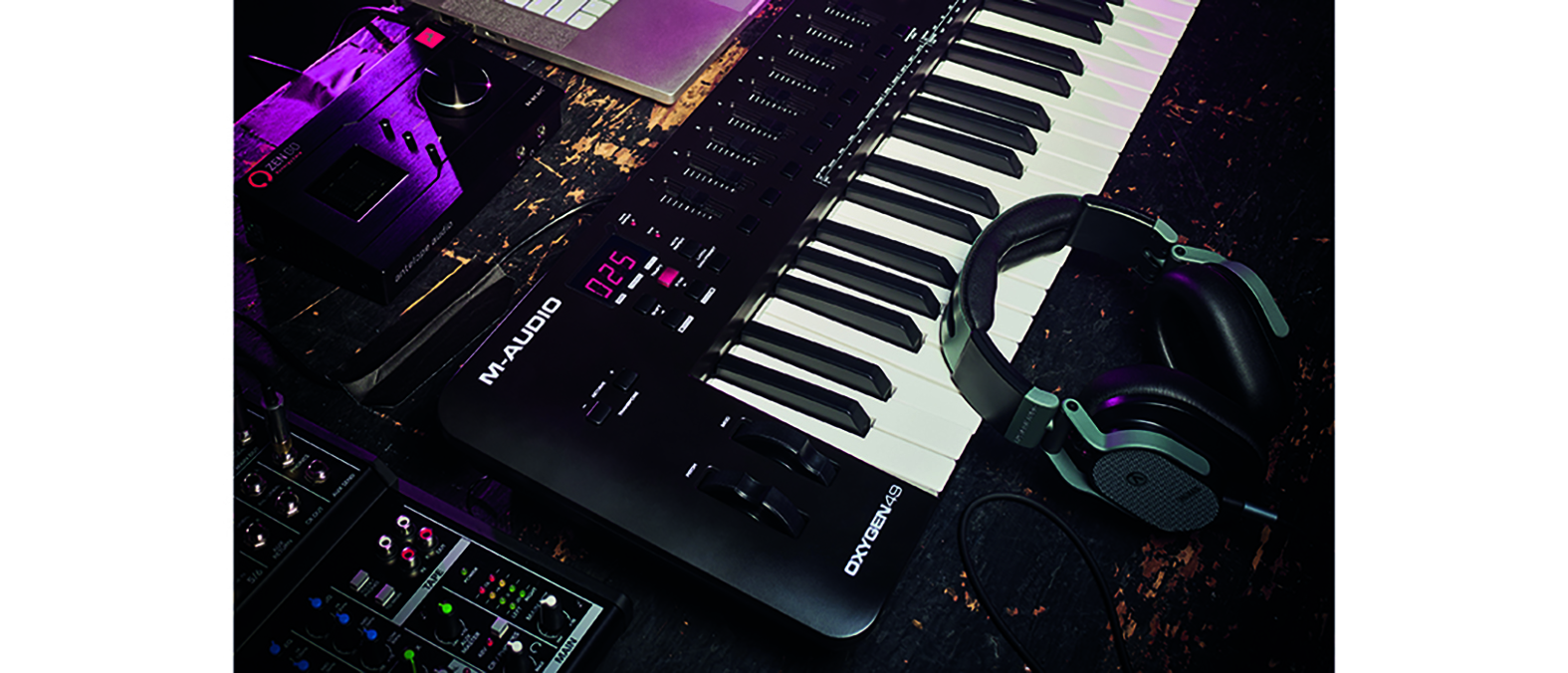MusicRadar Verdict
Look carefully at the ergonomics of this keyboard and the Oxygen Pro 49 and the extended feature set before deciding which is right for you.
Pros
- +
Chord and Scale modes help facilitate composition
- +
and production.
- +
Fully-featured arp.
- +
Deep DAW integration.
- +
Software suite is generous – plus educational tools.
Cons
- -
8 pads rather than the 16 of the Pro model.
- -
More functions are assigned to 'soft keys'.
- -
A couple of layout choices feel less ergonomic than on the Pro.
MusicRadar's got your back
What is it?
Earlier this year, M-Audio introduced the Oxygen Pro 49, the latest revision to the ‘top end’ of its highly popular range of controller keyboards. Having modified the flagship model, thoughts clearly turned to the more affordable Oxygen range and, accordingly, here is the fifth gen of the four-octave Oxygen 49.
Style-wise, the Oxygen 49’s corners are rounder, the OLED display of the Pro is replaced by a 3-segment LED display, whilst the 16 multi-coloured pads are stripped back to eight back-lit red ones. This affords more space to the Oxygen 49’s front panel, though is different to the ‘busier’ design of the flagship.
Perhaps the biggest compromise is only having half of the assignable pads of its big sibling, though do note that the pads here are split into two banks of eight, so you do still have access to 16 sound sources from the front panel when programming beats, just not all 16 simultaneously.
Also absent is the dedicated MIDI Out port on the rear panel; MIDI connectivity and bus power are offered via USB, but if you were hoping to trigger MIDI hardware directly from the Oxygen 49, consider yourself warned.
Perhaps the other biggest difference is that the Oxygen 49’s functions are mostly triggered via soft keys and via ‘secondary modes’ from the keybed itself. This is true to some extent on the Pro model too, though the buttons beneath the sliders are labelled there, providing immediate visual feedback and facilitating workflow more directly.

Performance and verdict
Oxygen Pro 49’s new sibling is also feature-packed and creative.
Much of the new tech introduced with the Pro is adopted here too. So you’ll also find you have access to the Pro’s Smart Chord and Smart Scale modes which aid songwriting and composition by, in the case of Chord Mode, triggering whole chords (major and minor, depending on the key of your track), from a single key.
In Scale Mode, you’ll find it impossible to trigger notes ‘outside’ of the key of your track, as keyboard playback adapts to reflect your chosen harmonic foundation.
Want all the hottest music and gear news, reviews, deals, features and more, direct to your inbox? Sign up here.
Also present are the Pro’s excellent Arpeggiator and Beat Repeat, so that stutters and repeats can be triggered from the pads. One slight gripe here; where the Note Repeat button is next to the pads on the Pro, its position just below the LED display here feels less intuitive.
The Oxygen Pro 49 breathed new life into the Oxygen range and its new sibling is also feature-packed and creative. Much of the tech central to the ethos of the rebadged Oxygen range is present here too, with excellent DAW integration, an all-singing Arpeggiator, Chord and Scale Modes and more.
As there isn’t a big price difference between this and the Pro, your decision will be how much cash to splash. Either way, you’ll get an impressive keyboard controller.
MusicRadar verdict: Look carefully at the ergonomics of this keyboard and the Oxygen Pro 49 and the extended feature set before deciding which is right for you.
Hands-on videos
M-Audio
Sanjay C
John Mike
Specifications

- 49 full-size, velocity-sensitive keys
- Preset and DAW buttons for auto-mapped DAW controls & plugin parameters
- Smart Chord mode, Smart Scale mode, Arpeggiator with Type, Octave, Gate and Swing controls
- 2 banks of 8 velocity-sensitive trigger pads with Note Repeat, 8 assignable knobs, 9 assignable faders
- Contact: M-Audio


